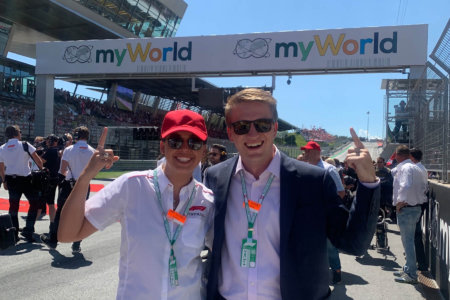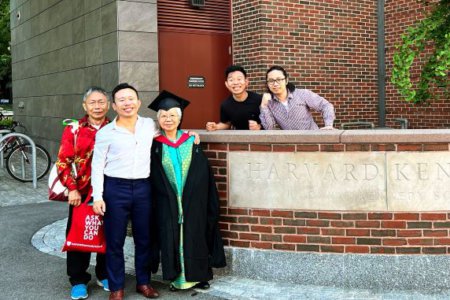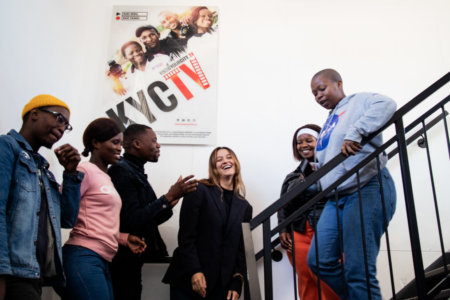
How can you prepare for an international career? For starters, strong language skills and a quality education can open the door to new opportunities. Céline Schumacher was a third culture kid with an international upbringing. She is trilingual and speaks fluent English, German and French. She completed her high school in the United Arab Emirates (UAE) and went to Switzerland to complete her degree. Today, she is pursuing her MBA — part-time — at the POLIMI Graduate School of Management in Milan, Italy.
The German has always wanted to gain as much international experience as possible, what with over eight years’ experience in client-centric roles in financial services, luxury hospitality and FMCG under her belt. She has done internships in France and Switzerland, started her career in the multicultural city of London, and is now back in Switzerland where she is working in investment management.
We caught up with the 29-year-old to learn more about how she’s juggling work and travelling to Milan to attend lectures at the POLIMI Graduate School of Management, and how she plans on carving herself a successful career in the world of finance.
Hi Céline. Can you tell us about yourself?
I grew up in several countries and completed my high school (IGCSE and International Baccalaureate) in Dubai, UAE; I knew that I wished to continue being surrounded by and interacting with people from all over the world.
I therefore chose to study Hospitality Management with a specialisation in Finance at the Glion Institute of Higher Education in Switzerland, which was enabling exactly that, a learning environment with students from all continents. After internships in France and Switzerland and being inspired by the finance path I selected at university, I started my career at Bloomberg in London.
After over five years in various roles in a dynamic environment, I returned to Switzerland, leveraging the language skills acquired through my international experiences. I initially worked for the cereals division of Nestlé, learning about the numerous processes involved to successfully manage a business unit and then moved back to financial services working for a family office providing wealth and asset management to private and institutional clients.
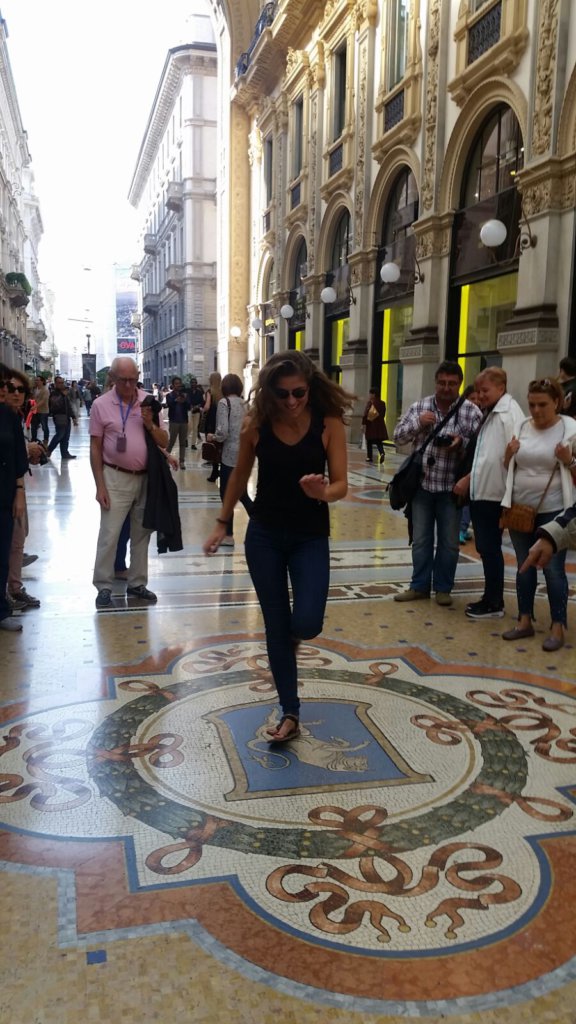
“The Italian culture fascinates me, especially the art and music,” notes Schumacher. Source: Céline Schumacher
What made you decide to enrol for an MBA at POLIMI Graduate School of Management in Milan?
I chose to pursue an MBA to enhance my knowledge of building and operating a business successfully. Given my international background, pursuing the MBA abroad was a logical next step. I selected POLIMI Graduate School of Management in Milan mainly for the following reasons:
- International experience – meaning international students as well as exchange programmes at other universities worldwide
- Part-time feature – ability to immediately put new concepts learned during the MBA into practice in my role (particularly topics such as negotiation, organisational design, strategy)
- Blended learning – learning both at my own pace in an online format and in a classroom environment with other working professionals adds a huge amount of value to my learning experience. I can organise my studies alongside my work and nonetheless take advantage of the interactions and experiences of my peers
- Excellence of university – as the Graduate School of Management of Politecnico, the business school leverages the rich history of Politecnico di Milano
What are some of the challenges that come with doing an MBA? How do you tackle them?
Managing work responsibilities and studies at the same time requires thorough planning and organisation. Consistency in sticking with the plan and making sure not to deviate from it too much are key to success.
I ensure to divide my week into different blocks, during evenings and weekends, to ensure I allow myself enough time to prepare for lectures and complete the assignments post classes. It is important to plan specific time blocks for studying and to allow time to leverage the opportunities provided by the MBA.
Being resilient is a key trait that I have developed in my eight-plus years of work experience, and that is helping me when applied to my studies as well.
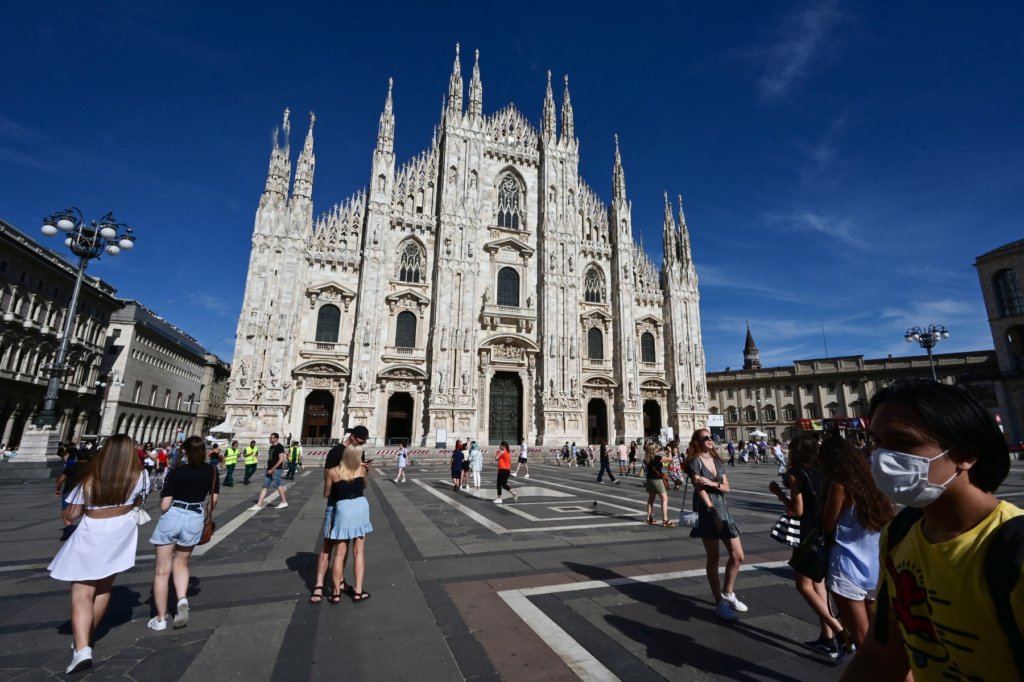
Tourists stroll on Duomo square in front of the Duomo Cathedral, centre Milan, on August 5, 2021. Source: Miguel Medina/AFP
Have you been able to apply what you’re learning in your MBA programme in real time?
I was able to apply many of my MBA learnings to my professional life already and see this continuing going forward. The most relevant lessons to date that I was immediately able to put into practice were the classes on Negotiation and Strategy learnt during the first year of the programme.
Those were particularly relevant as they allowed me to manage my projects more strategically, looking at the long-term rather than short-term success and better negotiate with clients.
I understand that you travel to Milan when you can to attend lectures. What’s life in Milan like?
I briefly knew Milan before I decided to pursue this MBA. I really love having a reason to travel to this wonderful city once a month. The Italian culture fascinates me, especially the art and music. I would love to improve my Italian to better connect with the locals.
Compared to some other European cities, Milan is definitely a more affordable option for international students, eating and going out is reasonably priced, and the hotels are in line with other big European cities.
What are your favourite things about the city?
The way of life in Milan suits me very well. With that I mean particularly the “aperitivo” [a pre-meal drink].
Tell us about the local food in Milan. What was your most and least favourite?
Food in Italy, in general, is quite diverse from the rest of Europe. It is impressive that just a few 100km apart one can find an area with totally different kinds of local food. In Milan, I am a fan of the Panettone during Christmas and of the Cotoletta. My least favourite food would have to be the Ossobuco, as am not a fan of risottos in general.

Juggling work with an MBA at POLIMI Graduate School of Management in Milan hasn’t been easy, but resilience is a key trait helping Schumacher power through. Source: Céline Schumacher
Switching gears: what are three lesser-known facts about yourself?
- I started playing chess recently and really enjoy it
- I visited Syria in late 2009, one of the most amazing, history-rich holidays I have ever had
- I recently did via ferrata in Normandie many metres above sea level, although I am terrified of heights
Do you have any advice for international students who want to study in Milan or Italy?
Go open-minded and make sure to embrace the local culture. Having some basic knowledge of the language helps to interact with the locals, and make sure to get to know the people from the place, as they can show you around and make you discover some less touristic and secret spots!
What about advice for those looking to carve themselves a career in finance?
Be naturally curious about geopolitics and world events, the world is now more interconnected than ever and, when it comes to investments, finance is global.
Being able to connect with people within the industry helps to understand emerging trends and new opportunities. Also, don’t be afraid to take some risks and think differently: contrary to popular belief, creativity is rewarded in finance.








